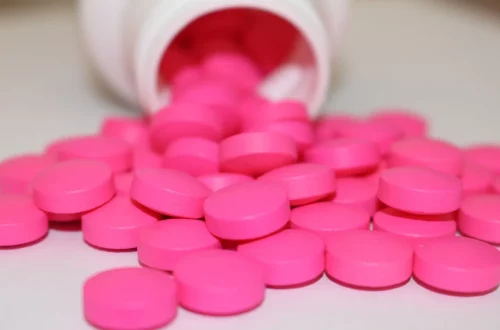
Understanding Why My Clit Hurts: Causes and Solutions
Understanding discomfort in the clitoral area is a topic that often goes unspoken, yet it affects many individuals. The clitoris, a highly sensitive organ, plays a crucial role in sexual pleasure, and any pain or discomfort can be alarming and distressing. While some may feel embarrassed to discuss these sensations, understanding the potential causes is essential for both physical health and emotional well-being.
Pain in this area can stem from a variety of sources, ranging from benign to more serious conditions. Many individuals may experience discomfort due to hormonal changes, infections, or even mechanical issues such as friction during sexual activity. It’s important to recognize that while some causes are temporary and easily treatable, others may require more in-depth medical evaluation.
Additionally, the way individuals perceive pain can vary significantly, influenced by personal experiences, psychological factors, and even cultural backgrounds. Creating an open dialogue about these discomforts can empower individuals to seek help and find solutions. Ultimately, fostering awareness and understanding can lead to better health outcomes and a more fulfilling life.
Common Causes of Clitoral Pain
There are several reasons why someone might experience pain in the clitoral area. Understanding these causes is the first step toward finding relief. One of the most common reasons for clitoral discomfort is irritation or inflammation, often due to friction during sexual activity or inadequate lubrication. This type of pain is usually temporary and can often be resolved by using a water-based lubricant or reducing the intensity of sexual activity.
Another prevalent cause of clitoral pain is infections. Conditions like yeast infections or sexually transmitted infections (STIs) can lead to significant discomfort. Yeast infections, in particular, can cause itching and swelling, which may extend to the clitoral region. STIs such as herpes or gonorrhea may also result in pain, accompanied by other symptoms like unusual discharge or sores. If you suspect an infection, it’s vital to seek medical advice for appropriate diagnosis and treatment.
Hormonal changes can also play a crucial role in clitoral sensitivity and pain. Fluctuations in hormone levels, especially during menstruation, pregnancy, or menopause, can lead to discomfort. During these times, some individuals may experience heightened sensitivity, which can translate into pain during sexual activity or even at rest.
Lastly, conditions such as vulvodynia, a chronic pain syndrome affecting the vulvar area, can lead to persistent clitoral pain. This condition is often misunderstood and can significantly impact an individual’s quality of life. If you experience ongoing pain that doesn’t resolve with typical interventions, consulting a healthcare provider is essential for proper evaluation and management.
Psychological Factors Affecting Clitoral Pain
While physical causes of clitoral pain are often discussed, psychological factors can also play a significant role. Anxiety, stress, and past traumatic experiences can all contribute to heightened pain perception. When an individual is anxious, their body may react by tensing muscles, which can exacerbate discomfort in sensitive areas like the clitoris.
Moreover, the psychological aspect of sexual health cannot be overlooked. Many individuals might feel pressure to perform sexually, leading to anxiety that can manifest as physical pain. This is especially true for those who have experienced negative sexual encounters in the past. The brain and body are intricately connected, and emotional well-being significantly influences physical sensation.
Communication with partners about comfort levels and boundaries can also alleviate some of the psychological pressure associated with sexual activity. Open conversations about likes, dislikes, and pain can foster a more supportive environment, reducing anxiety and enhancing the overall experience.
Furthermore, practices such as mindfulness and relaxation techniques can be beneficial for those experiencing clitoral pain linked to psychological factors. Engaging in activities that promote relaxation, such as yoga or meditation, can help reduce stress levels and improve body awareness, potentially easing discomfort.
Overall, addressing the psychological aspects of clitoral pain is as crucial as treating the physical symptoms. By understanding the interplay between mind and body, individuals can take proactive steps to improve their sexual health.
Treatment Options for Clitoral Discomfort
When it comes to addressing clitoral pain, treatment options vary based on the underlying cause. For mild irritation or discomfort, the first step is often to modify sexual practices. Using adequate lubrication, changing positions, or reducing frequency can provide immediate relief. Over-the-counter topical treatments designed for vulvar discomfort can also be helpful in managing irritation.
If an infection is suspected, seeking medical advice is crucial. Healthcare providers may prescribe antifungal or antibiotic medications based on the diagnosis. It’s important to complete the full course of any prescribed medication, even if symptoms improve before finishing the treatment.
For individuals dealing with hormonal changes, discussing options with a healthcare provider can be beneficial. Hormonal therapies, such as birth control pills or localized estrogen treatments, may help alleviate pain related to hormonal fluctuations.
In cases where chronic pain conditions like vulvodynia are diagnosed, a multifaceted approach may be necessary. This may include physical therapy focused on pelvic floor relaxation techniques, counseling to address any psychological components, and lifestyle modifications.
Additionally, some individuals may find relief through alternative therapies, such as acupuncture or herbal remedies. While these approaches may not work for everyone, exploring various options can empower individuals to take control of their health.
Ultimately, it is essential to remember that everyone’s experience with clitoral pain is unique, and finding the right treatment may take time. Working closely with a healthcare provider can ensure that the chosen treatment is appropriate and effective.
When to Seek Professional Help
Recognizing when to seek professional help for clitoral pain is crucial for maintaining sexual health. If discomfort persists despite attempting home remedies or lifestyle changes, it is advisable to consult a healthcare provider. Ongoing pain can be a sign of an underlying condition that requires medical evaluation.
Moreover, if the pain is accompanied by other concerning symptoms, such as unusual discharge, sores, or fever, seeking immediate medical attention is vital. These symptoms may indicate an infection or other serious condition that requires prompt treatment.
For individuals experiencing significant emotional distress related to their pain, speaking with a mental health professional may also be beneficial. Pain can be isolating, and having support can make a significant difference in managing both the emotional and physical aspects of discomfort.
In summary, while clitoral pain can be distressing, understanding the potential causes and knowing when to seek help can lead to effective management and relief. Every person’s journey is different, and prioritizing health is essential for overall well-being.
**Disclaimer:** This article is not intended as medical advice. If you are experiencing health concerns, please consult a qualified healthcare professional for guidance and support.




